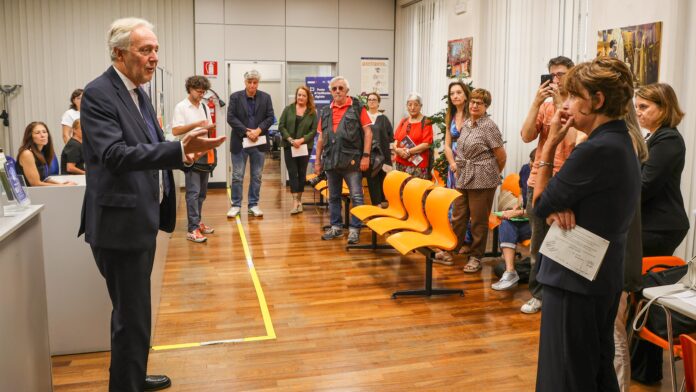by InTrieste
A new municipal service desk dedicated to assisting elderly residents who are not self-sufficient, along with their families, was introduced on Thursday at the Department of Social Services and Social Policies in Via Mazzini.
The desk, which operates by appointment, is available on Mondays and Wednesdays from 2 p.m. to 5 p.m. and on Tuesdays and Thursdays from 10 a.m. to noon. Families can schedule visits through the city’s social services hotline.
City and regional officials presented the initiative, describing it as a step toward easing access to information and assistance for households caring for dependent relatives. Massimo Tognolli, Trieste’s councillor for social policies, called the service “a vital point of connection between families and public administration,” emphasizing its role in guiding citizens through an often complex welfare system.
The new desk will initially focus on supporting families in navigating administrative and digital procedures, particularly those connected to in-home care. Two trained operators from the local cooperative La Quercia will manage the service.
The program is part of Italy’s National Plan for Non-Self-Sufficiency (2022–2024), which directs resources from a national fund to support essential services for dependent individuals. Friuli Venezia Giulia approved its own regional framework last year, channeling both national and local resources toward programs for frail and elderly residents.
One aspect of the initiative involves collaboration with SI.CON.TE, a regional service that specializes in connecting families with qualified home care workers. The service also assists households with the legal and administrative aspects of employment contracts, while promoting training and professionalization in the domestic care sector.
In Trieste, SI.CON.TE already operates a permanent office within the city’s employment center. Officials said the collaboration between the municipal and regional services could strengthen support networks, improve transparency in hiring caregivers, and help combat undeclared domestic work.
Regional councillor Alessia Rosolen, who oversees labor, training, education, and family policies, noted that the project aligns with broader efforts to improve welfare accessibility and ensure continuity of care at home.
Authorities said the desk will also act as an observatory, gathering information on families’ real needs and challenges. This, they added, will help shape future policies aimed at improving care, reducing bureaucratic hurdles, and supporting both caregivers and care recipients.






























